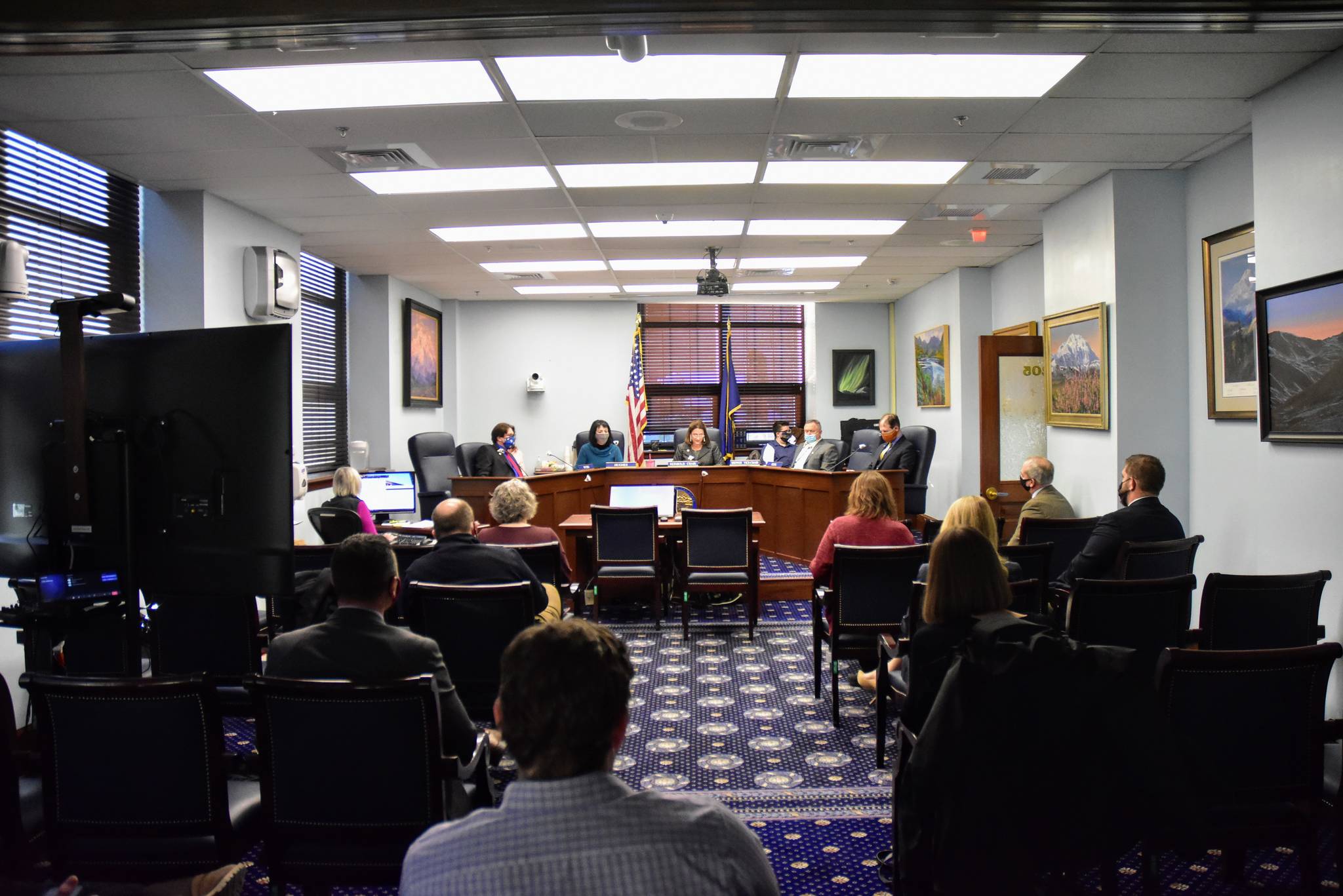The Alaska House of Representatives once again failed to elect a leadership Wednesday, the fourth time the body has done so since first convening Jan. 19.
Only one member of the House Coalition — a 20-member group of mostly Democrats that also includes independents and a Republican — attended Wednesday’s floor session, which like all the others so far this year, was limited to procedure and adjourned briefly after scheduling the next floor meeting.
“Without an agreement to form an organization in the House there was no need for every member to crowd into the chambers for a procedural hearing,” said coalition spokesperson Austin Baird.
Coalition members would be present for Thursday’s session, he said.
Republican House members met throughout the day, gathering in the House Health and Social Services Committee Room at the Capitol for closed-door discussions.
While House members inched closer to organizing, senators have wasted no time in getting to their own work. Legislative work was left unfinished when lawmakers adjourned early last year because of the coronavirus pandemic. On Wednesday, four Senate committees had their first meetings.
Speaking to the press, members of the all-Democrat Senate Minority said they were working with their Republican colleagues to advance legislation.
“We’re starting where we left off,” said Sen. Tom Begich, D-Anchorage, the Senate Minority Leader.
Begich said he developed a good working relationship with Gov. Mike Dunleavy on the Alaska Reads Act, a comprehensive education bill that had bipartisan support in the last session. That bill passed the House but wasn’t able to reach the Senate before lawmakers adjourned early because of the pandemic, but Begich said he believed that relationship would continue.
The House will meet again Thursday morning at 11 a.m.
Senators start committee work
No legislation was reviewed in committee meetings, but in the first meeting of the Senate Judiciary Committee, Sen. Lora Reinbold, R-Eagle River, called for the end of COVID-19 mitigation measures. Reinbold submitted for consideration the Great Barrington Declaration, a statement drafted and signed by dozens of doctors from leading medical institutions around the world.
That declaration is controversial, and was touted by former President Donald Trump’s pandemic adviser Dr. Scott Atlas, according to the New York Times, but dismissed by many in the medical community. The nation’s top epidemiologist Dr. Anthony Fauci called the declaration unscientific, dangerous and “total nonsense,” according to the Times.
Reinold invited one of the declaration’s authors, Dr. Martin Kulldorff, a biostatistician and professor of medicine at Harvard Medical School, to testify to the committee. Kulldorff said that lockdowns as a means of combating the spread of coronavirus both failed and created countless additional collateral damage by shutting down schools and businesses.
[Dunleavy to give virtual State of the State address]
Kulldorf said that lockdowns should be focused on vulnerable populations only, while younger more resilient populations maintain their daily routines thereby fostering herd immunity to the disease.
Reinbold chastised Department of Health and Social Services Commissioner Adam Crum for failing to account for negative impacts of COVID-19 mitigation measures on the public. Reinbold asserted that many of the measures put in place violated provisions of the U.S. Constitution such as the right to peaceably assemble, and asked Crum if he remembered the oath sworn to the document upon taking office.
“Do you understand [the Constitution] that it is the supreme law of the land,” Reinbold asked Crum, who affirmed he did.
Contact reporter Peter Segall at psegall@juneauempire.com. Follow him on Twitter at @SegallJnuEmpire.

